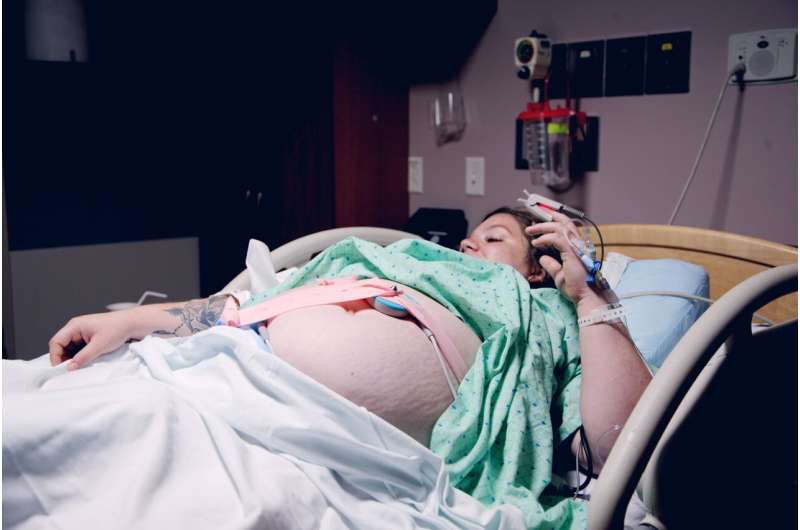This article has been reviewed according to Science X's editorial process and policies. Editors have highlighted the following attributes while ensuring the content's credibility:
fact-checked
peer-reviewed publication
trusted source
proofread
How obstetric interventions affect the birthing experience

In a recent study by researchers from the universities of Cologne and Düsseldorf as well as University Hospital Bonn, mothers across Germany were asked how they rated their experiences of "own capacity," "professional support," "perceived safety" and "participation" during their birthing experience eight to 12 months after having given birth.
The highest level of satisfaction in all four areas was recorded for vaginal birth without medical intervention. In general, the women rated the birthing experience rather positively, with an average of 3.09 points out of a maximum of 4 points.
However, women who underwent obstetric interventions reported significantly lower satisfaction scores. Five percent of the participants reported an overall negative birth experience. The study, "Obstetric interventions' effects on the birthing experience," was published in the journal BMC Pregnancy and Childbirth.
Despite the social relevance of this topic and its importance for the women affected, there are only a few scientific studies in Germany that deal with obstetric care in hospitals and the issue of '"women experiencing violence during childbirth." The study is based on the answers of 852 mothers and is part of the MAM-Care project, which addresses the needs, participation and safety in obstetric care in Germany.
"Since women are more dissatisfied with their birth experience when they undergo obstetric interventions, aspects like empowerment as well as good cooperation between the obstetric team and the persons giving birth are particularly important," said principal investigator Professor Dr. Nadine Scholten, who carried out the work at the Institute for Medical Sociology, Health Services Research and Rehabilitation Science (IMVR) at the University of Cologne.
She now holds the professorship for psychosomatic and psycho-oncological health services research at the University of Bonn and heads the Research Center for Health Communication and Health Services Research at Bonn University Hospital.
Obstetric interventions include fundal pressure (pressure on the abdomen), unplanned C-sections, episiotomy and assisted vaginal delivery (vacuum extraction/forceps).
Unplanned C-sections received the lowest ratings for "own capacity" and "perceived safety;" assisted vaginal deliveries received lower scores than unplanned C-sections in the dimensions of "professional support" and "participation." In general, women who had an unplanned C-section or assisted vaginal delivery rated their" own capacity" lower than women who had fundal pressure or an episiotomy.
However, the researchers also found that negative experiences in one area of the questionnaire were offset by positive experiences in another. According to the authors, this highlights the importance of support and participation.
"Promoting self-efficacy, establishing a connection, offering support and alleviating fears can contribute to a positive birth experience despite interventions," added Anna Volkert, first author of the study.
According to the researchers, further research is needed to investigate the unexplained variance in birthing experiences, particularly in regard to the effects of empowerment and support. They recommend developing strategies together with the obstetric teams to minimize negative birthing experiences in the event of necessary obstetric interventions.
More information: Anna Volkert et al, Obstetric interventions' effects on the birthing experience, BMC Pregnancy and Childbirth (2024). DOI: 10.1186/s12884-024-06626-5




















